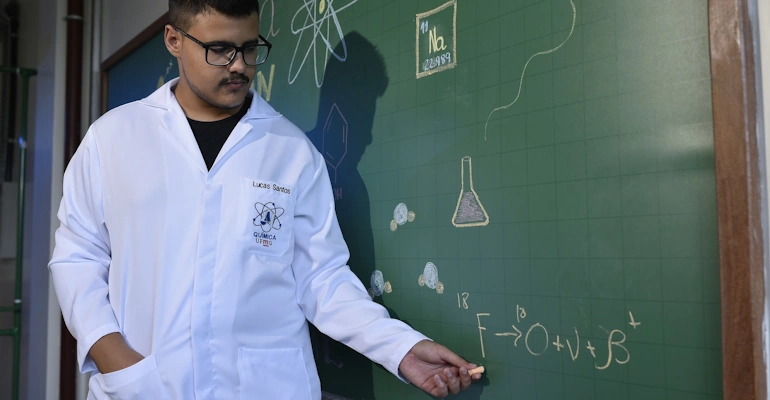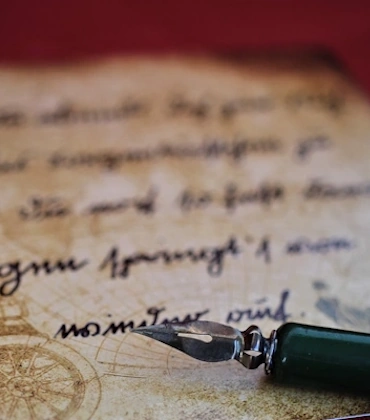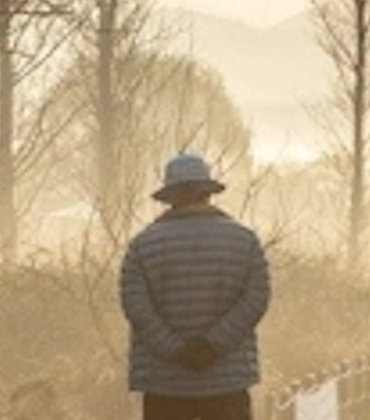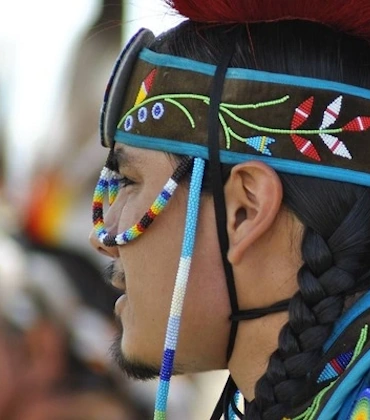
Women Who Made a Difference
This month I urge you to read my book, Soldiers in Petticoats: Appalachian Educators, which should be available at your local library, but, if not, it can be ordered through Interlibrary Loan (ILL) with help from your librarian. Three women who sacrificed to make education a possibility for youngsters—and occasionally adults─ lived during a time when few avenues of service were available to females. However, Sophia Sawyer worked as a tailor, Emily Prudden edited a religious paper, and Martha Berry worked at a cotton brokerage.
Sophia’s life ended in the nineteenth century, but both Emily and Martha experienced the turbulent days of the early twentieth century. All three accepted the values of piety, purity, submissiveness, and devotion to family. Sophia, convinced that she knew as much as any man about the duties of a teacher, often challenged the role of a submissive female, but ultimately gave in to her superiors. Only after moving to Arkansas away from her duties mandated by a mission board did she became an overseer who was completely in charge of her work. These women did not assume the prescribed role of homemaker; instead, they became role models for classrooms of children.
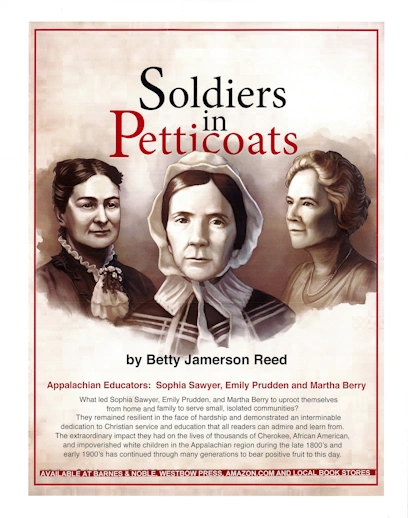
Sophia Sawyer, Emily Prudden, and Martha Berry became interlopers in an alien culture, but each respected and honored the community she served. Each woman worked diligently to shape new opportunities for underserved or ignored students. As a result, they created templates for educational progress. Sophia Sawyer, answering the call to the Cherokee Nation in northern Georgia and eastern Tennessee, left her New England home in 1823 to serve a sharply contrasting society of Native Americans.
In 1882 Emily Prudden journeyed alone to the Brainerd Institute in Chester, South Carolina, to become involved in the lives of black girls in a boarding school. Martha Berry remained in the place of her birth, near family and friends, while providing for children and youth who did not share her privileged lifestyle. At times, Sophia’s and Emily’s students looked upon their Yankee teachers as trespassers, and the mountaineers Martha befriended often thought of her as an affluent stranger, but such attitudes changed. To most of their students, these women became treasured as family.
Women of the past merit the attention of modern readers. Their accomplishments occurred at a time when being a female leader required bounding over many hurdles. Earnestly seeking to help the deprived, Sophia Sawyer, Emily Prudden, and Martha Berry confronted crisis after crisis; they fought fires, discrimination, bigotry, and poverty, as well as ignorance and even dirt. They remained confident that God would provide the way, the funds, the stamina, and the direction. Operating a school became an ongoing challenge. Whenever their purses were threatened, they invested time and humility in seeking help. Neither power nor money nor influence ever came simply for the asking, but these three shared another goal—to lead worthwhile lives, lives of usefulness. That would be enough.
In some ways, Sawyer, Prudden, and Berry modeled the biblical description of the ideal woman in Proverbs 31. Although the author addresses the role of a married woman, his accolades also relate to single women. Unmarried women have homes and frequently care for families. Sophia Sawyer protected her pupils within a boarding school environment, in day schools, and at her seminary; she tended sick students, even performed minor surgery; she helped dress little children and played with them. Emily Prudden cared for her sister’s orphaned children, provided companionship for her aging mother, and then built schools and living facilities for her pupils. Martha Berry cared for her father following his stroke, helped run his business, looked after younger siblings, supported her mother’s efforts to run the farm, and actively provided for her students.
In Proverbs 31:16 NIV, the ideal woman “considers a field and buys it.” These women bought “fields” to provide or expand school property, stayed up late at night to complete their chores, oversaw cultivating and harvesting gardens and orchards, and made sure their family members — and school families — did not suffer. Sophia Sawyer, Emily Prudden, and Martha Berry — each was a worthy woman who opened “her arms to the poor” and extended “her hands to the needy” (Proverbs 31:20 NIV). Their work endures, continuing to touch the future in a positive way. Unlike Malala Yousafzai, the twenty-first-century Pakistani activist for female education, neither of these three “soldiers in petticoats” took a bullet to the head or had an asteroid named in her honor or received a Nobel Prize, but each battled forces that limited educational opportunities for the poor. Sophia Sawyer lashed out not with a sword but with words to champion Cherokee girls; Emily Prudden worked covertly to secure property as a school site for black children; and the aristocratic Martha Berry barricaded her schools from infiltration by the children of the rich and powerful. These three waged war against ignorance and deprivation. Their lives are a record of personal faith and fortitude. In the end, each of these extraordinary women was victorious in attaining the hallmark of usefulness.


